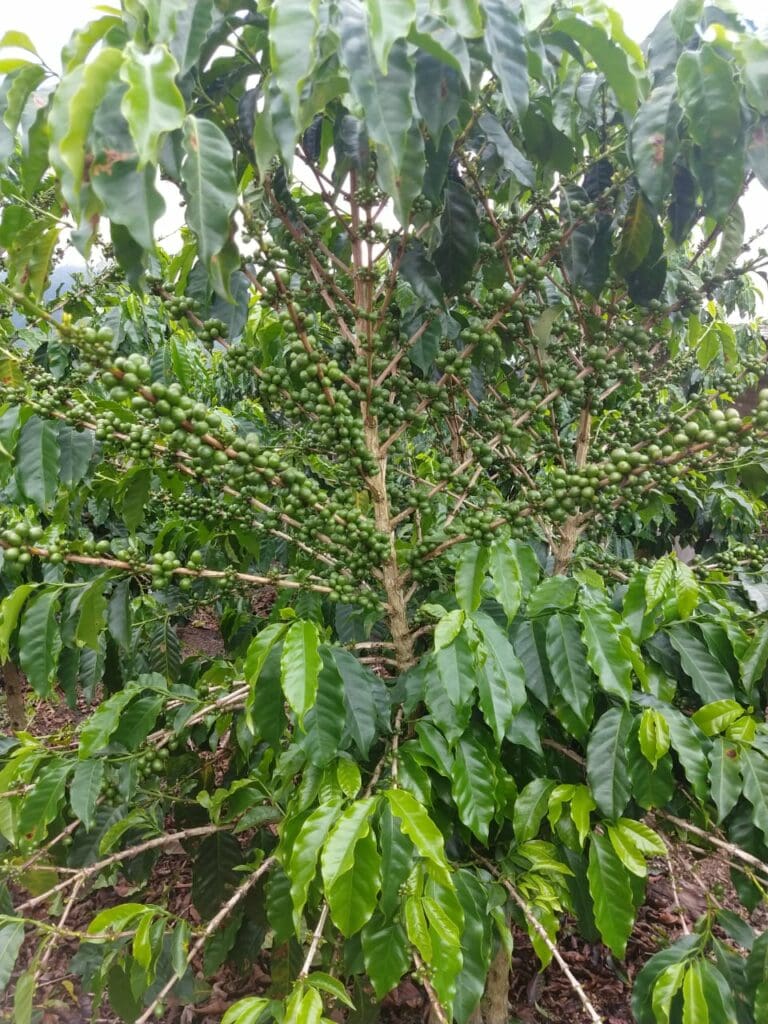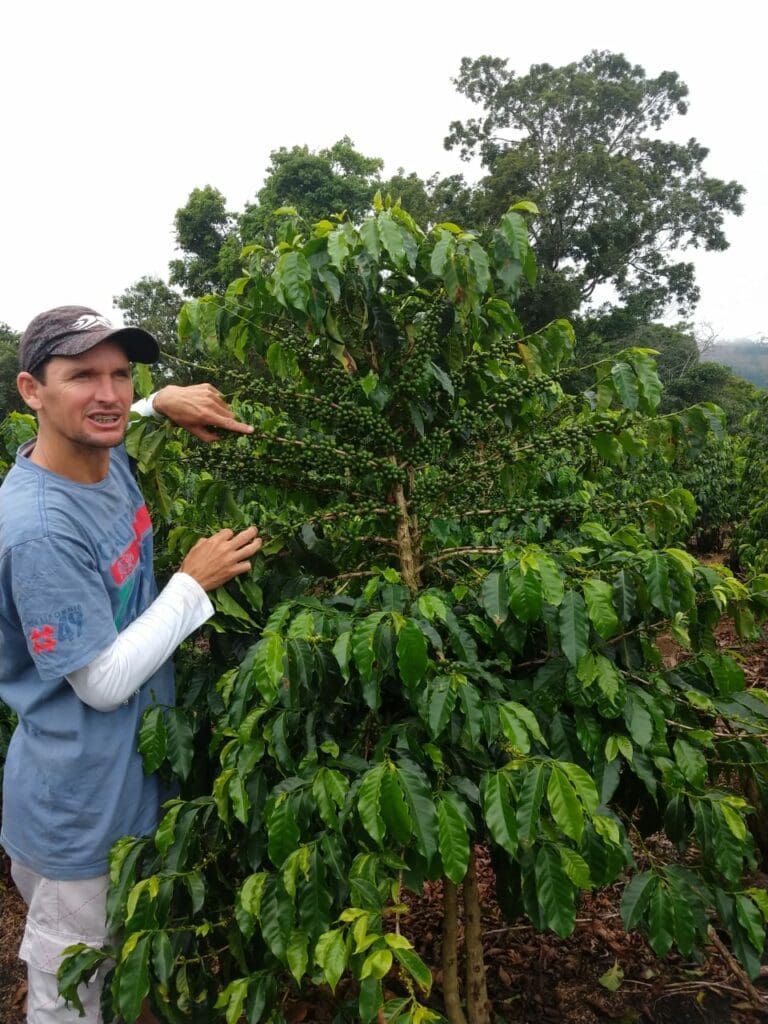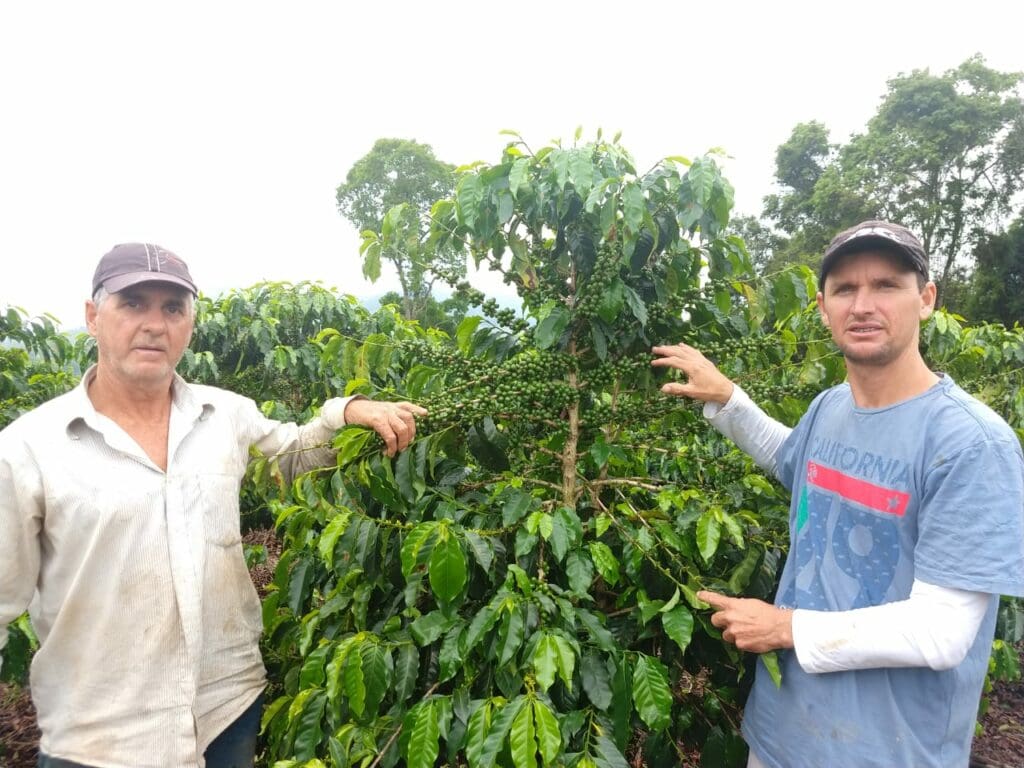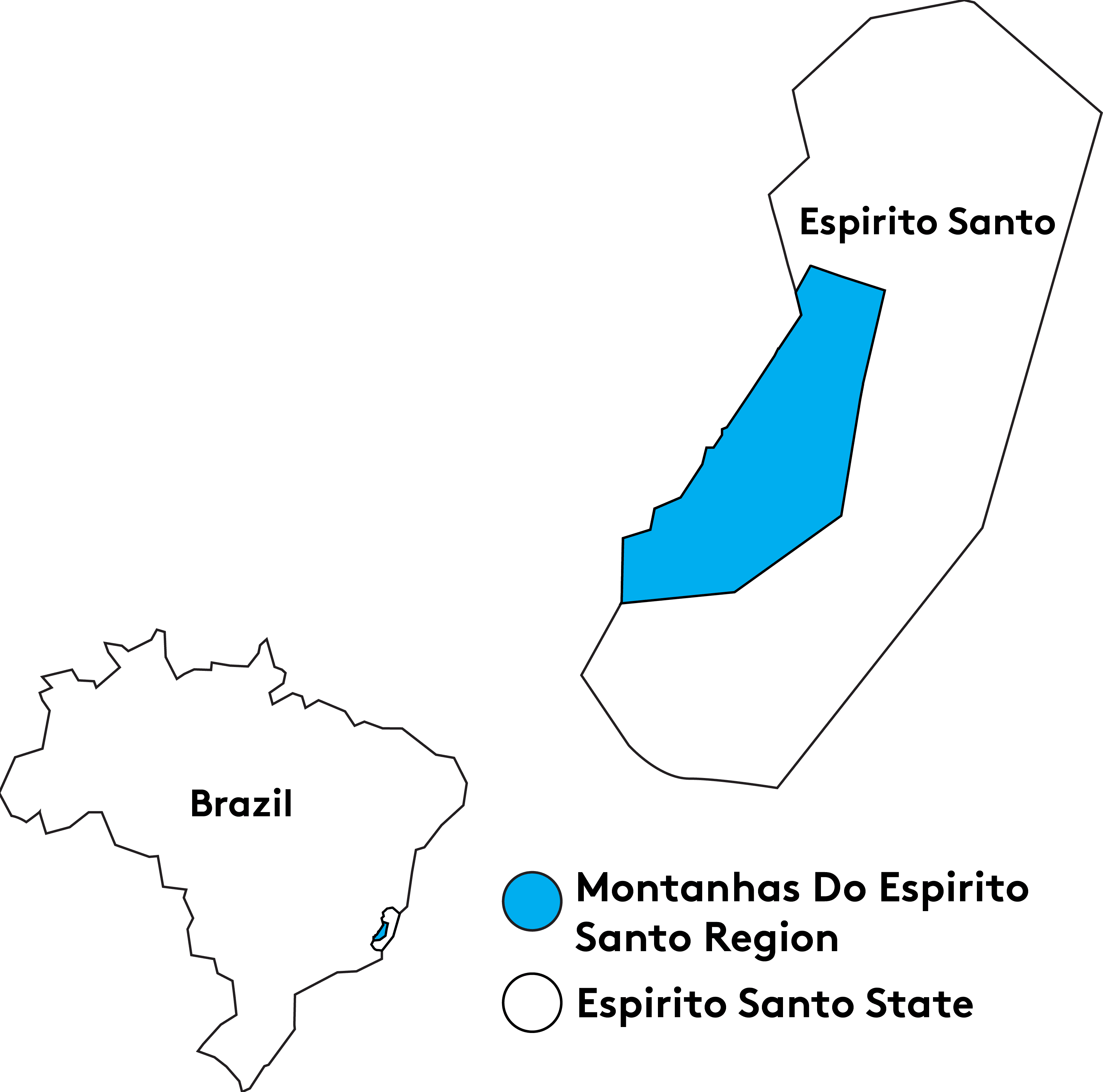Jeverson Pin is part of the fourth generation of his family to work as coffee producers. He learned the trade from his father, Mr. Osmar Pin, and his uncle, Mr. Pedro Pin, observing their work alongside his brother from a young age.
In 2002, Jeverson and his uncle Pedro planted coffee together and established their crop on the 22 hectare Estância Córrego Manso. Over time they have expanded their initial plot to now cover 11 hectares across two neighboring farms—Estância Córrego Manso and Sítio Sombra do Cedro—with Catuai, Catucai, and Mundo Novo varieties.
Jeverson maintains his motivation to grow quality coffee, continuing to improve his work by planting new varieties and implementing new technologies in his operation. Today, he hopes to set a good example for his young son, who already loves coffee as much as he does.
This lot of Yellow Catuai coffee underwent Pulped Natural processing. Catuai was developed by the Instituto Agronomico (IAC) of Sao Paulo State in Campinas, Brazil by crossing Mundo Novo and Caturra varieties. Catuai coffees are cultivated widely across Brazil, and are known for their high productivity potential.



